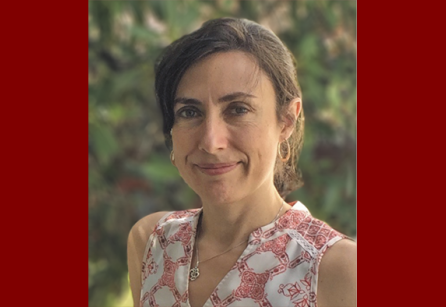News
Carolina López-Ruiz Lecture
September 29, 2021

Join us for a public lecture, "Resilience and Innovation in Mediterranean Religion: Re-centering the Phoenicians," by Professor Carolina López-Ruiz.
Thursday, October 7, 5pm, Swift Hall Common Room (1st floor). This lecture is free and open to the University of Chicago community.
ABSTRACT: The study of ancient Mediterranean religions is still dominated by the overwhelming presence of the Graeco-Roman and Abrahamic traditions in our culture. But when we pull the Phoenicians out from under their shadow, we discover an alternative set of interconnections between Near Eastern cultures and the Mediterranean. The Phoenician perspective transcends the classical framework and foregrounds the religious landscapes of other Iron Age groups. Phoenician religion, attested from Iberia and North Africa to Cyprus and the Levant, provided a fruitful matrix for religious adaptation, exhibiting modalities of both resilience and innovation. The Phoenicians also participated in the development of new theological interpretations, from elements in cosmogony to Euhemerism, that were channeled into Greek, Roman, and early Christian texts and reached us through them.
Carolina López-Ruiz (Ph.D. University of Chicago, Committee on the Ancient Mediterranean World) has taught at The Ohio State University (in Classics) since 2005. Her research focuses on two areas: the comparative study of Greek and Near Eastern mythologies, and cultural contact among Greeks, Phoenicians, and other groups, with a special interest in ancient Mediterranean religions and Phoenician culture. She co-edited the volume Colonial Encounters in Ancient Iberia: Phoenician, Greek, and Indigenous Relations (University of Chicago Press, 2009), while her first monograph analyzed the interrelations among Greek and Northwest Semitic creation narratives (When the Gods Were Born: Greek Cosmogonies and the Near East, Harvard University Press, 2010). The anthology Gods, Heroes, and Monsters: A Sourcebook of Greek, Roman, and Near Eastern Myths in Translation (Oxford 2018, 2nd ed.) situates Greek and Roman mythology in its broader Mediterranean context. She has co-authored a monograph on Tartessos and the Phoenicians in Iberia (Oxford University Press, 2016), and co-edited The Oxford Handbook of the Phoenician and Punic Mediterranean (2019). In her most recent book, Phoenicians and the Making of the Mediterranean (Harvard University Press, 2021) she offers a new model for the role of the Phoenicians in the “orientalizing” period. The project was supported by a National Endowment for the Humanities Fellowship (2016-17) for the NEH Initiative “The Common Good: The Humanities in the Public Square.” Some of her books have been translated into Turkish and Spanish.

